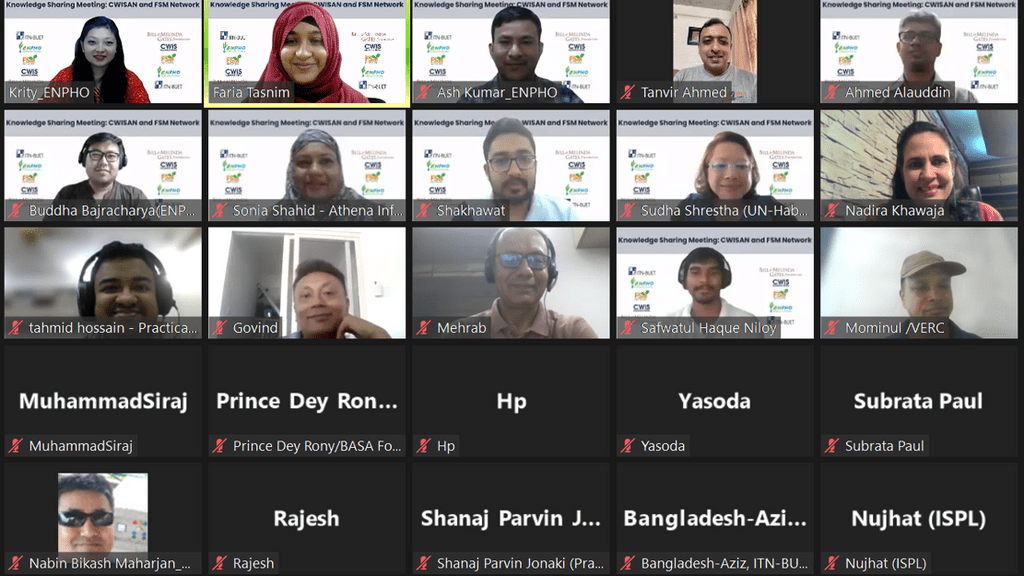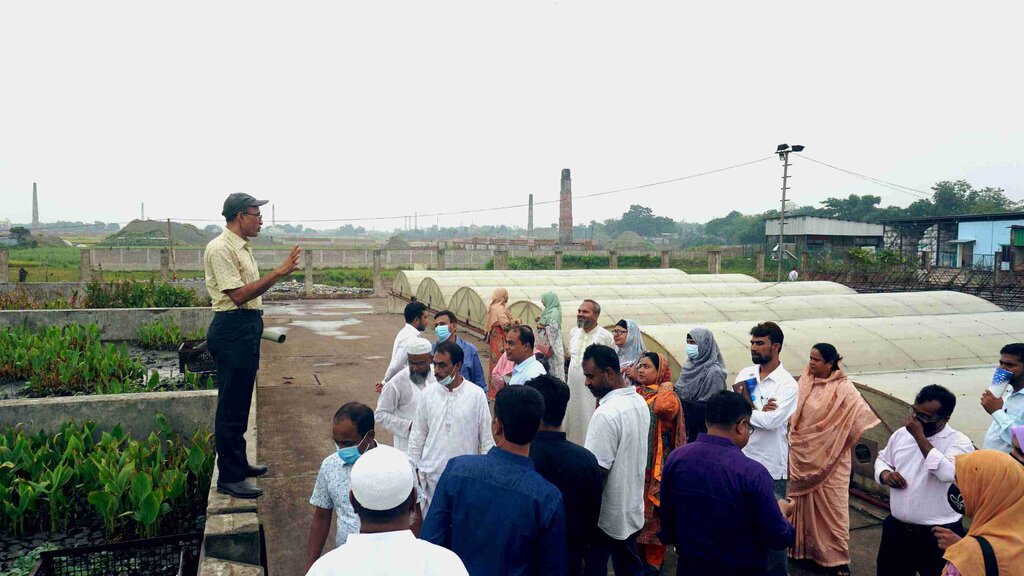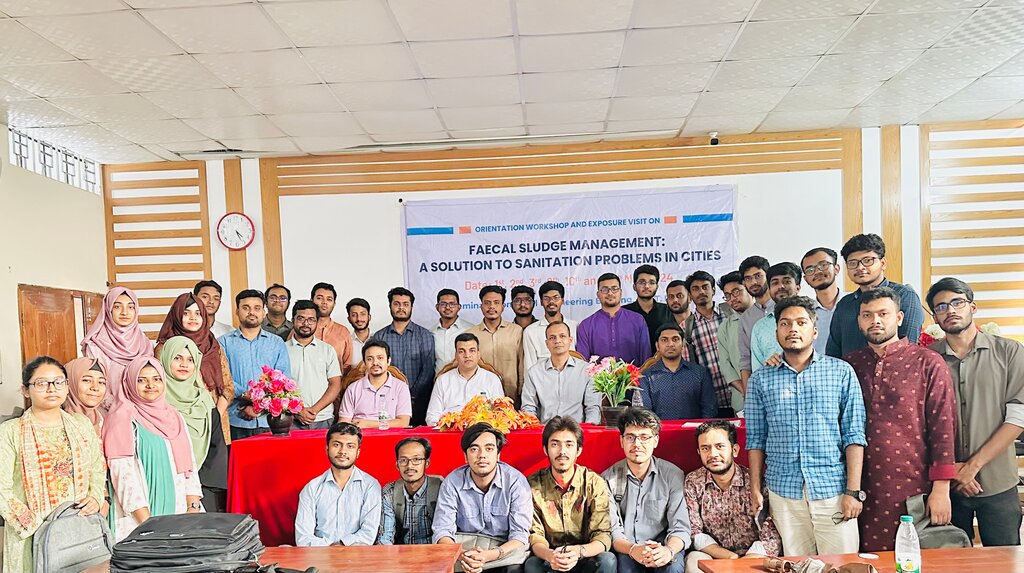Aimed at improving the emergency service delivery for the Forcefully Displaced Myanmar Nationals (FDMN) at 33 camps in Cox’s Bazar, the Department of Public Health Engineering (DPHE) has undertaken extensive training initiative as part of the Emergency Multi-Sector Rohingya Crisis Response Project (EMCRP). In this context, ITN-BUET facilitated a four-day long training event on “Programmatic Recovery Framework Approach for Emergency Response” and “Improving the emergency service delivery of camp sanitation (fecal sludge management & safe water use)” arranged in collaboration with DPHE.
The training took place from 24-27 September 2023, at Hotel Sea Crown in Cox’s Bazar. A total of 40 participants from RRRC officials, DPHE, WASH sector co-ordination, Area-focal agencies (IOM, UNHCR, UNICEF), Camp-focal agencies (BRAC, CARITAS), Implementing agencies (Oxfam, CARE Bangladesh, ACF, Shushilan, NGO Forum of Public health, DSK) participated in the event. The training sessions were skillfully conducted by Master Trainers and sector specialists from different institutions including Md. Azizur Rahman, Research Officer (Technical), ITN-BUET, Mr. Mohammad Ali, WASH officer, UNICEF and Faria Tasnim, Project Officer, ITN-BUET.
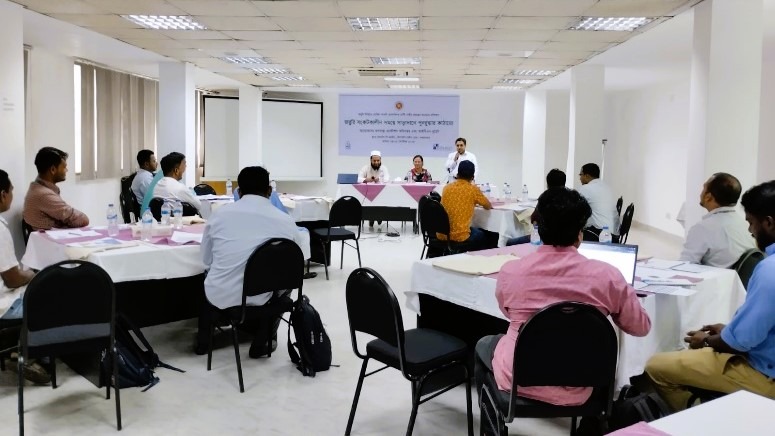
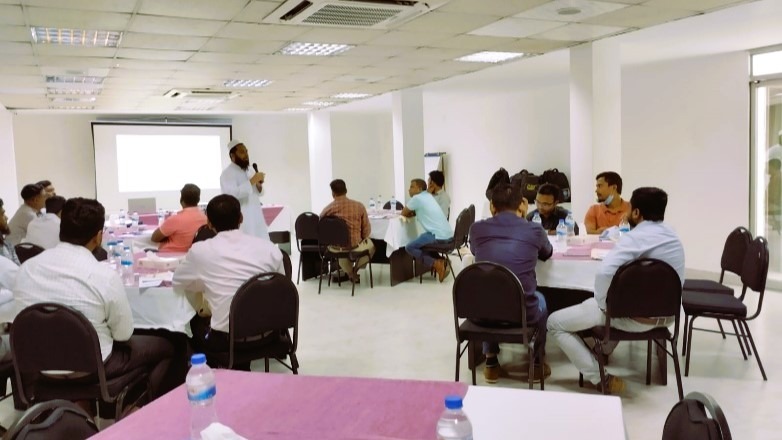
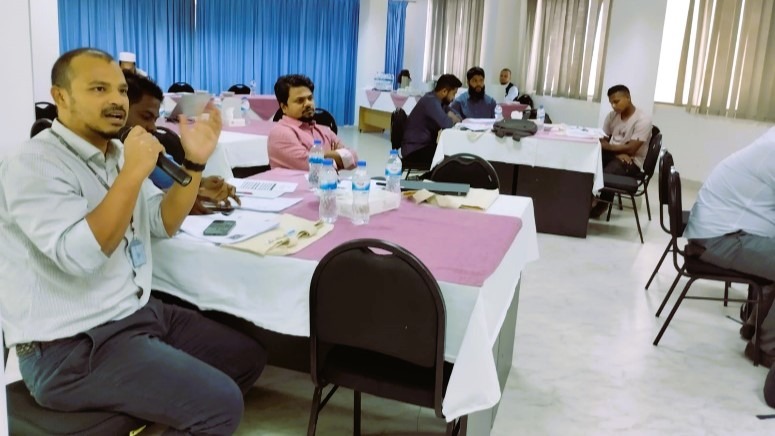
Ms. Sarmistha Acharjee, the Deputy Project Director of EMCRP inaugurated the event encouraging all the participants to leverage the knowledge acquired during the training to implement safe and sustainable waste management practices within the camp context.
The training provided participants with a comprehensive orientation on the UN convention, historical context surrounding the influx of FDMN, sectoral coordination for emergency response, and strategies for recovery in emergency contexts. The training also covered management and technological aspects of service delivery of fecal sludge management, solid waste management, water supply, hygiene improvement and vector control in emergency settings. A central focus of the training was how to address cross-cutting issues, such as equity, inclusiveness, and sustainability in emergency service delivery. Participants were actively encouraged to share their practical experiences and engage in discussions, fostering valuable connections between different mandates and perspectives.
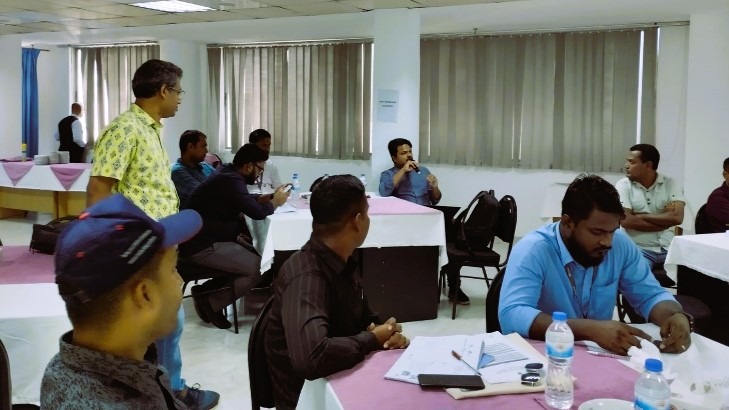
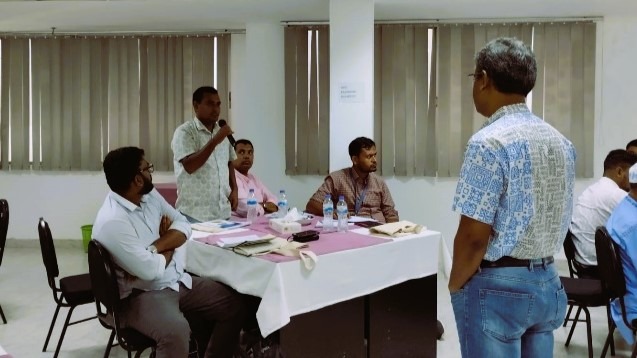
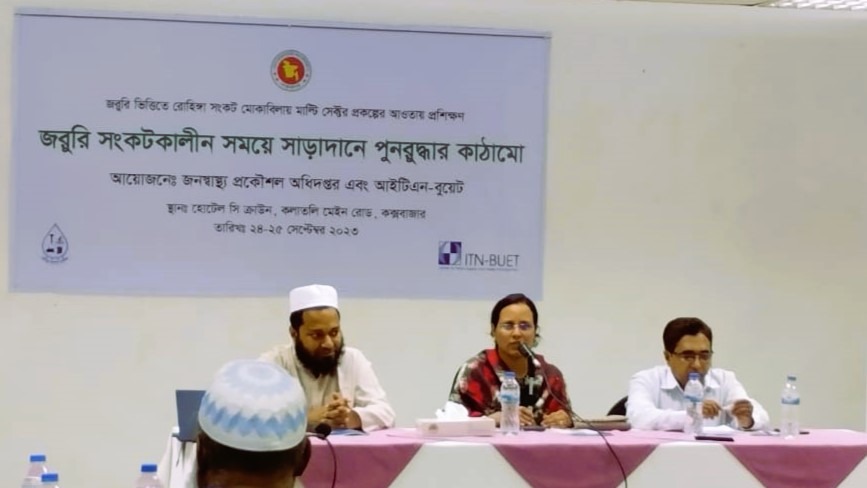
Mr. Iqbal Hossain, Care and Maintenance officer, RRRC expressed his opinion that the training event effectively filled their knowledge gaps regarding waste management, water supply, and other hygiene-related concerns in humanitarian emergencies.
Mr. Riazul Islam, WASH Officer, UNICEF expressed appreciation for the thoroughness of the training and covering not just the technical aspects but also considering the social and environmental factors.
Additionally, participants provided feedback suggesting that more training sessions should be arranged, given the critical role of sanitation in emergencies. This would ensure that they are well-prepared to address sanitation needs effectively during emergency situations, ultimately benefiting affected communities.
Finally, the event was closed with remarks from Ms. Acharjee, the Deputy Project Director of EMCRP where she highlighted the vital importance of the knowledge and skills that the participants had acquired during the program. She emphasized how these newfound abilities have the potential to play a crucial role in shaping future endeavors related to the management of Water, Sanitation, and Hygiene (WASH) interventions in emergency contexts.


.jpg)
